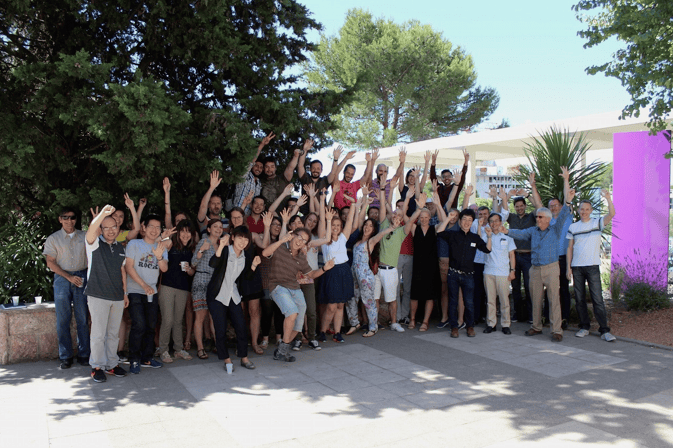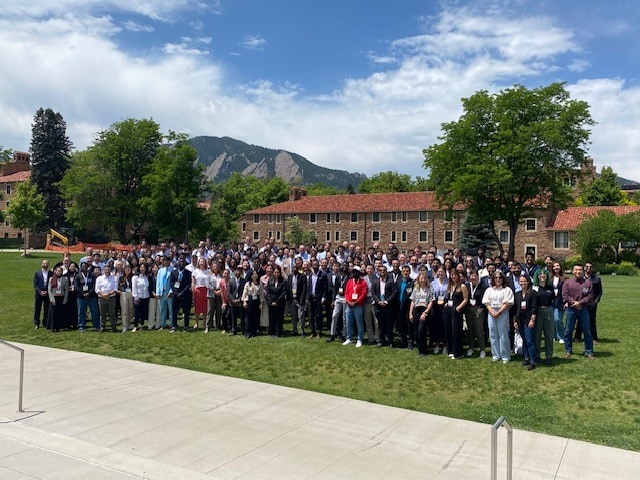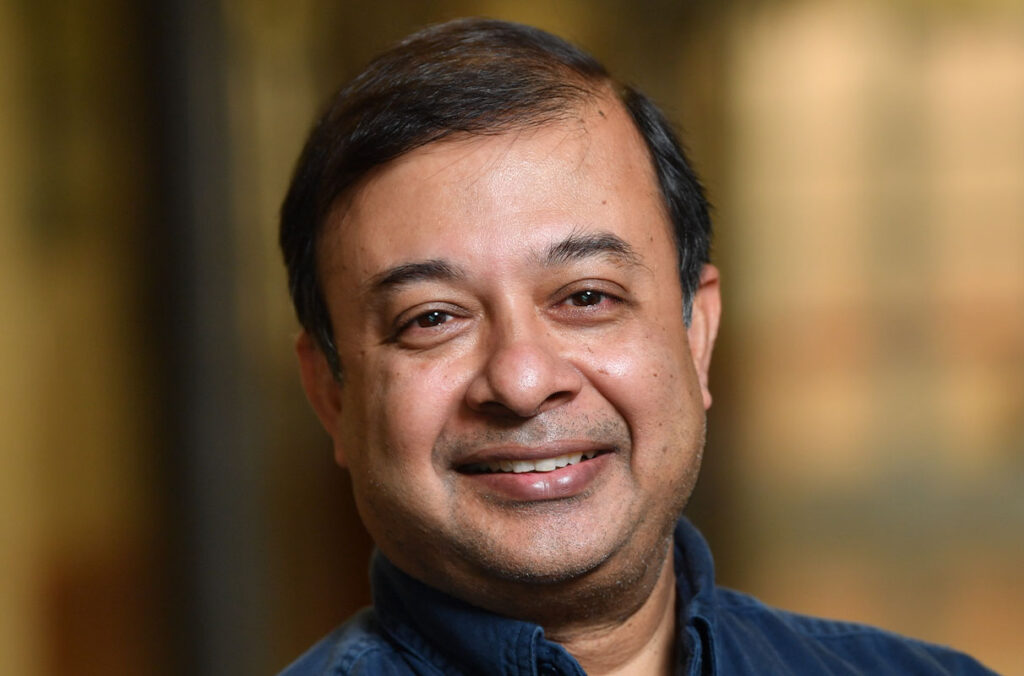
[Image above] ICG Summer School 2016 participants get ready to dive into some serious glass research in Montpellier, France, in July 2016. Credit: ICG
Editor’s note: This story comes to us from the International Commission on Glass. For more information on ICG or their educational programs, contact J.M. Parker, University of Sheffield (U.K.) at j.m.parker@sheffield.ac.uk.
The 8th International Commission on Glass Summer School program took place in July in Montpellier, France, and it drew a strong turnout—36 participants from 10 countries gathered for the program’s intensive glass course. Twenty-eight of those participants signed up for the glass science educational track and 8 for glass technology.
The program combined formal lectures with student presentations, which gave participants a chance to share their research interests and aspirations. Students engaged in project work and tutorials and researched on site. Six of the lecturers arranged small group discussions to address student questions and topics of interest. Students also had the opportunity to network during various coffee breaks and lunches and during an opening welcome party and closing banquet.
On day one of the program, participants attended the same introductory courses, and the seven project groups included attendees from both the glass science educational and glass technology tracks. Student feedback gathered during and after the program commented on friendliness of the lecturers and quality of their teaching.
The last day of the program gave students the opportunity to demonstrate their lecturing skills and present conclusions on their projects in front of their peers. Final presentations also facilitated discussion and probing questions about research done over the course of the program.
Presentations were judged and two first prizes were awarded—one to a group that examined mechanisms of sodium-ion diffusion and the involvement of non-bridging oxygen (Helene Pablo, Luka Pavic, Celine Ragoen, Alessio Zandona, and Abdul Rahshidi); and the second to a group tasked with creating a project for a final year undergraduate student on glass melting (Vickie Falk Jensen, Miroslava Huyjova, So Sakurai, Damier Bolore, Frederik Van Hoof, and Ana Aznar). Third place went to the big EGO company based on an Environmental Glass Organisation, set up to win a large international prize by solving a major social issue (Thorben Welter, Laura Aalta-Setala, Julian Moriceau, Ben Allsopp, and Philipe Kiefer).
Another ICG summer school program is already scheduled for July 2017 and will feature sessions focused on glass science and the use of computer modeling in glass science and technology. Visit ICG’s website for more information.
ICG is looking for ways to celebrate the 10th summer school program in 2018—publication of a book summarizing the schools, their history, and their contents is one possibility. Teachers or students with suggestions are encouraged to reach out to J.M. Parker at j.m.parker@sheffield.ac.uk.
Author
Stephanie Liverani
Spotlight Categories
- Meeting Highlights


